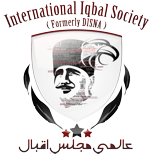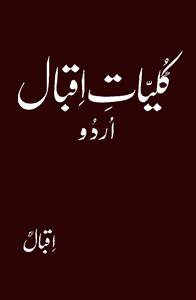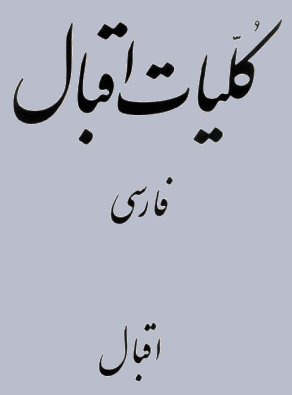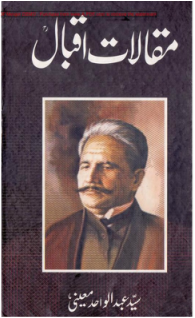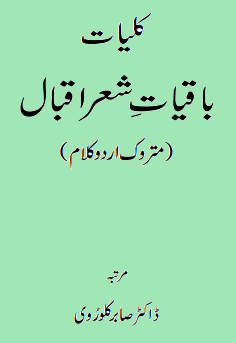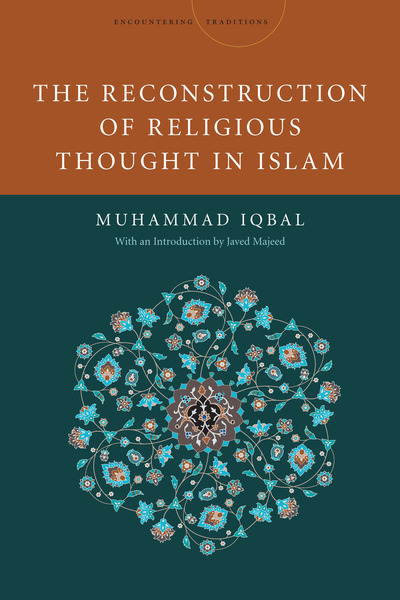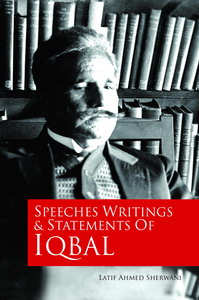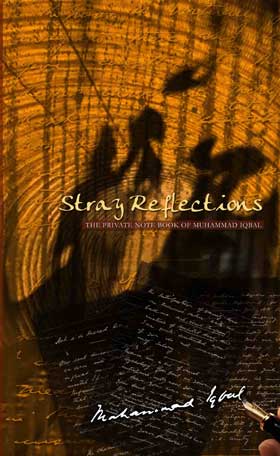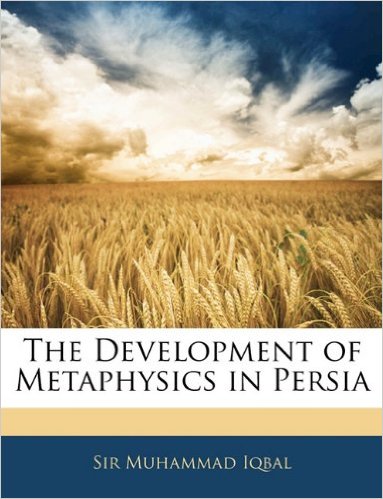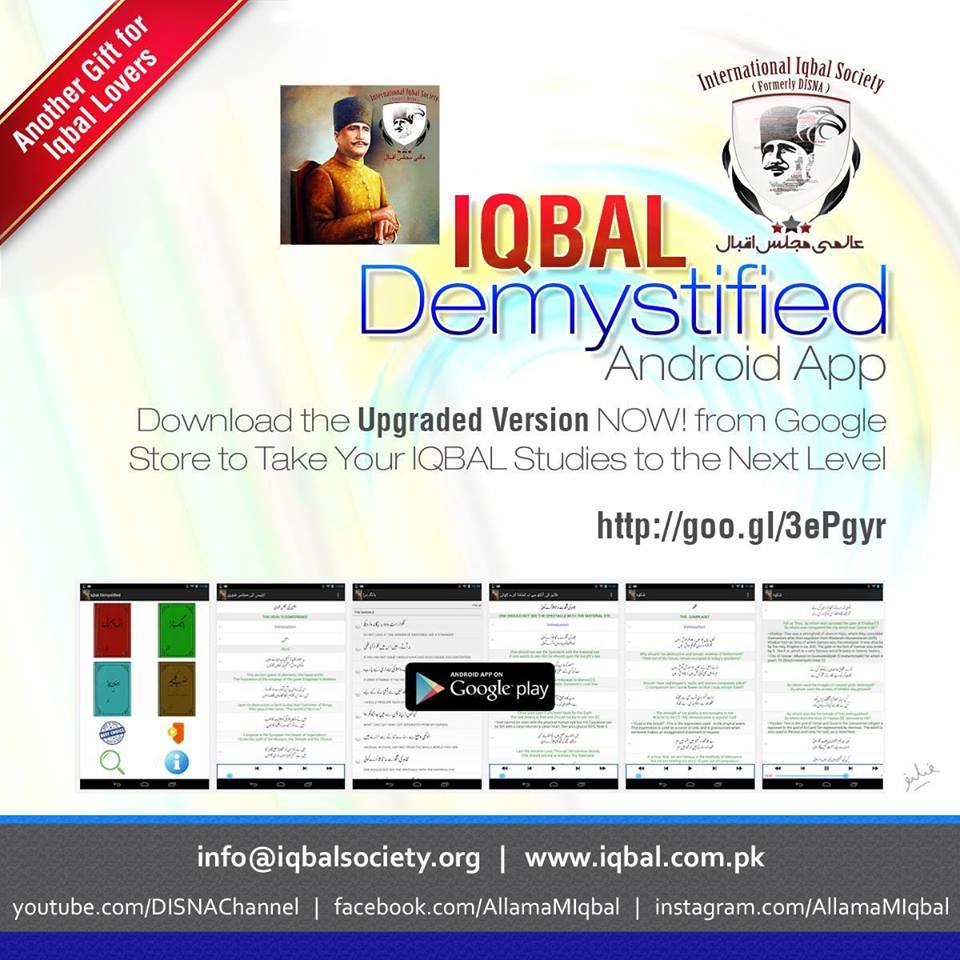Iqbal: The Poet Philosopher of Islamic Resurgence
by : Sayyid ‘Ali Khamane’i
Translated from the Persian by: Mahliqa Qara’i
Published by: al Tawhid Islamic Journal, III, No. 4
Islamic Republic of Iran
Introduction
I should admit candidly that today when I see that our country is holding a seminar for paying tribute to our beloved Iqbal, I am obliged to feel that this day would prove to be one of the most memorable and exciting days of my life.
That luminous spark that washed out from our hearts the darkness of the days of suffocation and repression (through his impressions, poetry, counsel and teachings) and projected a bright picture of the future before our eyes is now transformed into a bright torch to have attracted the attention of our people.
Our people who were the first foreign addressees of Iqbal were unfortunately very late to recognize him. The particular conditions in our country, especially the political domination of the colonialist powers during the last years of Iqbal's life in his favorite country, Iran, never allowed Iqbal to visit this country.
This great poet of Persian language, who composed most of his poetry in Persian and not in his own mother tongue, could never breathe in his dear and desired climes. Not only that Iqbal never came to Iran, but the same politics with which Iqbal was at war throughout his life did not allow his ideas, his ideology and his teachings to reach the ears of the Iranian people, who were ever eager to receive his message. I have an answer to this question as to why Iqbal did not come to Iran.
At that time, when Iqbal was at the pinnacle of his fame and glory and was known all over the subcontinent and all the renowned universities of the world recognised him as a great thinker, philosopher, scholar, humanist and sociologist (of course none of these titles corresponded to the title by which Iqbal desired to be known), in our country the politicians who ruled the country could not tolerate Iqbal and his ideas in any way.
For this very reason he was never invited to Iran and the ground for his visit to this country was not prepared. Not only were none of his books published for years in Iran, even the titles of his ‑ books remained unknown to us. During the days when the literary works and culture alien to both the Iranians and Muslims were flooding this country like a devastating deluge, not a single poem or work of Iqbal was allowed to catch the public eye.
Today the Islamic Republic (i.e. the embodiment of Iqbal's dream) has been established here, Iqbal, whose heart ached to see the Muslim people having lost their human and Islamic personality, and who viewed their loss of identity and spiritual poverty as the greatest danger to their existence and tried with all the power at his disposal to uproot this vicious weed from the human soul in general and from the inner being of the people of the East in particular and especially the Muslims,
Had he been alive today, he could have seen a nation standing on its feet, infused with the rich Islamic spirit and drawing upon the inexhaustible reservoirs of Islamic heritage, a nation which has become self‑sufficient and has discarded all the glittering Western ornaments and is marching ahead courageously, determining its own targets and moving to attain them, advancing with the frenzy of a lover, and has not imprisoned itself within the walls of nationalism and racialism.
I am glad to have this opportunity (though for a brief time) to introduce to our people this great figure, a great thinker, a great reformer of our age, a revolutionary and an unrelenting warrior.
I would, of course, be pleased if my presence in this function be free from all formalities, so that, firstly, I may enjoy with satisfaction this commemorative ceremony and, secondly, I may be given an opportunity to give vent to a fraction of my emotions about Iqbal before the audience.
I request the brothers and sisters to allow me to speak frankly like a person who for years had been a follower of Iqbal and has lived emotionally in his company, so that to some extent I can give him what is due to him on behalf of me.
Iqbal is one of the eminent personalities in the history of Islam. His is such a profound and sublime personality that it cannot be described and measured by only one dimension of his life. Iqbal was a scholar and a philosopher, but at the same time other dimensions of his life are also so bright that if we consider him to be just a philosopher and a scholar, we feel that we have belittled him.
Undoubtedly Iqbal is a great poet and is reckoned among the greatest. Those who know Urdu very well and have written about Iqbal's Urdu poetry maintain that Iqbal's Urdu poems are among the best in Urdu.
Of course this may not be a great tribute to him as the poetic tradition of Urdu is not so rich. But it cannot be disputed that his Urdu poetry made a great impact on large numbers of people, on Hindus and Muslims equally, living in the Subcontinent during the early decades of the twentieth century, and motivated them to participate in the struggle (for freedom) that was reaching its climax.
In his mathnawi (a long poem consisting of rhymed couplets) Asrar‑e-Khudi(The Secrets of the Self), he refers to this point:
باغبان، زور کلامم آزمود مصرعی کارید وشمشیری ورود
“Gardener tried the strength of my words
He plucked a verse of mine and (through it) my sword appeared
I infer from these lines that while he had been composing his Urdu poetry for quite a long time and was known to all Urdu knowing people of the Subcontinent, in my view Iqbal's Persian poetry is to be regarded as one of the miracles of poetry.
We have a large number of non‑Persian‑speaking poets in the history of our literature, but I cannot point out any of them whose poetry possesses the qualities of Iqbal's Persian poetry. Iqbal was not acquainted with Persian idiom, as he spoke Urdu at home and talked to his friends in Urdu or English. He did not know the rules of Persian prose writing.
A specimen of Iqbal's Persian prose is available to us in his prefatory note to his mathnawi Rumuz‑e-Bikhudi (The Secrets of the Selflessness) and Asrar‑e Khudi(The Secrets of the Self). If you read them you will see that it is hard for the people whose mother tongue is Persian to understand it.
Iqbal never studied Persian at any stage in a school or college during the years of his childhood or youth. In his father's house he used to speak Urdu. Iqbal chose the Persian language as his medium of literary expression only for the reason that he felt that his ideas and themes could not be effectively expressed in the Urdu language.
As such he was attracted towards Persian and he studied the collections of the Persian poets like Sa'di, Hafiz, and Mawlawi as well as the Persian poets who wrote in Indian style like `Urfi, Naziri Nishaburi and others.
In spite of not having tasted the Persian way of life, never living in the cradle of Persian culture, and never having any direct association with it, he cast with great mastery the most delicate, the most subtle and radically new philosophical themes into the mould of Persian poetry, some of which are unsurpassable yet.
In my view this is what can be explained as his poetic genius. When you compare his poetical works with those of other non‑Iranian poets who wrote poetry in Persian, you will realize the greatness of Iqbal. Some of the ideas that he has expressed with ease in one couplet, if one try to render them into prose it will take a long time and great deal of effort to do‑so. It is not an easy job even for us whose mother tongue is Persian.
Iqbal’s Poetry as his Introduction
There can be no better introduction of Iqbal than his poetry. In no other way we can introduce Iqbal more truly. Some of the Persian poems of Iqbal are the most sublime pieces of Persian poetry. Iqbal's verses are in different styles, in Indian style, in `Iraqi style, in Khurasani style, and in various poetic forms, likemathnawi (poetry composed of distiches corresponding in measure, each consisting of a pair of rhymes), ghazal (sonnet), qat`ah, dobayti (couplets) andruba'i (quatrains).
Their themes as well as their renderings are sublime; notwithstanding, he did not know how to speak and write Persian (prose), and this needs extraordinary genius. At the same time to commend Iqbal as a poet is to belittle him, for he was a great reformer and a great freedom fighter as well. Though Iqbal's position and status as a freedom fighter and social reformer is very high, he cannot be regarded as a mere social reformer either.
In the Indian subcontinent several Hindu and Muslim contemporaries of Iqbal were considered as social reformers, whose works are known and whose participation in the freedom struggle needs no introduction. Among the Muslims, there were great personalities like Mawlana Abu al‑Kalam Azad, Mawlana Muhammad 'Ali, Mawlana Shawkat 'Ali and the late Muhammad `Ali Jinah.
They also belonged to the same period and to the same generation and were great freedom fighters; but the greatness of Iqbal's work cannot be compared with any of them.
It does not mean in any way to minimise the great importance and value that we attach to Mawlana Abu al‑Kalam Azad, an eminent figure in his own right, or to Mawlana Muhammad 'Ali and Mawlana Shawkat `Ali (who were untiring Muslim freedom fighters who struggled for long years to drive out the British from their country), but Iqbal's case is different from all of them. Iqbal's problem was not the problem of India in particular, but his concern was for the whole Muslim world in general.
In his mathnawi, Pas chi bayad kard ay Aqwam‑e Sharq, he addresses himself to the Eastern nations and it indicates that his keen eyes had an all‑inclusive view of the entire Muslim world. He was not concerned with the problems of India alone. Therefore, if I describe Iqbal as a social reformer, I will fail to cover his entire personality.
I cannot find a proper term that can describe him. You can see that his personality, his greatness, his mind rich with ideas and the totality of his being, elude the power of comprehension of people like us. To be true to ourselves we have to confess that we have been far away from Iqbal.
As such this conference is one of the most useful things we have done so far. Even this is not enough. I would ask the honored Minister of Higher Education and Culture and my brothers in universities to think about the possibilities of establishing foundations in Iqbal's memory, and to name university halls and cultural centers in our country after Iqbal.
Iqbal belongs to this nation and this country, and one of his famous poems is dedicated to the people of Iran which begins with the following verse:
چو چراغ لاله سوزم درخیابان شما
ای جوانان عجم ، جان من و جان شما
“As the tulip lamp I burn on your paths
O Youth of Iran, my life is your life”
And he says:
میز صد مردی که زنجر غلامان بشکند دیده ام از روزن دیوا ر زندان شما
“ Leader of hundreds of men is coming so that chains of slaves can be broken
My eyes see him coming every day - through the walls of your prison.”
This poem also strengthens my belief as to why Iqbal could not visit Iran. He considered Iran as a prison and addressed the people living here in the way the prisoners are addressed. There are plenty of poems in Iqbal's collections which show his dissatisfaction with India at least the India of his own time.
It was for this reason that he turned his attention to Iran so that the flame that was burning inside his heart could be converted into a bright blaze in Iran. He was waiting for a miracle to occur here: This is Iqbal's due that we owe to him, and we should always remember our indebtedness to him.
Iqbal and His Times
If we wish to understand Iqbal and the significance of his message, it is necessary for us to know the conditions of the Subcontinent during his lifetime ‑ an epoch that culminated in Iqbal. Without this study we cannot understand the real meaning of Iqbal's message, the melody of his tone and the inner fire that kept him restless. The Subcontinent went through the hardest phase of its history during Iqbal's lifetime.
Iqbal was born in 1877, that is, twenty years after the quelling of the Muslims' revolt against the English in 1857, when they inflicted a final blow upon the Islamic rule in the Subcontinent. A great revolutionary upsurge overtook the whole country and continued for several years, but four months (the middle of 1857) marked its culmination.
The British used this opportunity to make an assault on Islam, which they had been contemplating to make for the last seventy or eighty years, and they imagined to have uprooted Islam from the Indian soil.
They put an end to the Muslim rule that was breathing its last breaths. The only obstacle in their way of the total colonization of the Indian subcontinent was the existence of the same rule, which they had succeeded in weakening during the course of time.
They liquidated its chief fighters and eminent personages in order to eradicate the deep‑rooted Islamic civilization and to completely uproot this corpulent and old tree which was shorn of any power of resistance at that time, and to make India a part of the British Empire.
The year 1857 was the year of absolute victory for the British in India. After having officially annexed India to Britain and named their country as the Empire of Britain and India, the colonizing of India did not pose any problem, for India was treated henceforward as one of the provinces of the Great Britain.
After that they took all possible precautions to crush every revivalist, nationalist and religious movement in that country. Their aim was to wipe out the Muslim population, as they knew it well that it were the Muslims who resisted them in India. They already had tested this.
The Muslims fought with the English and their mercenaries, the Sikhs, who were serving them since the early nineteenth century. This was known to the‑English very well and to those who were acquainted with the Indian affairs, who used to tell them that the Muslims were their real enemies in India and that they were to be eliminated.
From the year 1857, which was the year of their victory, an extremely oppressive and tyrannical plan was chalked out to suppress the Muslims. If we go into its detail it will take a long time. Many books were written on this subject. The Muslims were subjected to economic pressures as well as to cultural and social discriminations.
Collectively, they were subjected to the worst kind of humiliations. As regard to the conditions of employment their declared policy was to recruit non‑Muslims only.
The awqaf (endowments) that ran Islamic institutions and mosques were in large number and they were taken away. The Hindu merchants were motivated to lend money to the Muslims in order to seize their property in return for their debts. It was resolved that their relationship with the land should be cut off and their sense of belonging to the land be uprooted.
This process continued for a long time. The Muslims were killed without reason and arrested for no fault of theirs. All such people who were suspected of carrying on any activities against the English were suppressed and eliminated ruthlessly. These conditions prevailed for several years.
After one or two decades of this repression, which has no parallel anywhere in the world ‑ not in any of the colonized countries were the people suppressed so severely as the Indian Muslims ‑ ultimately some people began to think about the possible remedy for this situation; but of course the angry resistance against the English was not given up.
India should never be forgetful of the fact that the Indian Muslims played the most vital part in the battle against the English. In fact it will be an act of thanklessness on the part of India to forget her indebtedness to the Muslims of India. The Muslims did never sit idle during the freedom struggle as well as during the great revolution that was brought about there.
During the years after the incident of 1857, when there was peace and calm everywhere, the militant Muslim elements were active in every nook and cranny. There were two courses of action open to them, that is, either the politico‑cultural movement, or a purely cultural movement to meet the challenge threatening the position of the Muslims.
One of the movements was led by the `ulama' and the other was initiated under the leadership of Sayyid Ahmad Khan. These two movements represented two cross‑currents opposing each other, and this is not the occasion to go into detail concerning them.
The `ulama' believed in waging war against the English. They resolved to boycott the English and their educational institutions and not to accept any grant from them. The course followed by Sayyid Ahmad Khan was in opposite direction. He believed in having good relations with the Englishmen, benefiting from their institutions and making a compromise with them.
Unfortunately both of the two movements, though opposed to each other, ended in disastrous consequences for the Muslims. The first one that was led by the eminent Indian `ulama', many among whom were distinguished historical figures.
Their struggle was rightly guided and their ideology was also based on right thinking, but they tried to keep away the Indian Muslim community from acquiring the first and foremost thing they required and which could enable them to master modern developments in science and technology; for example, they did not include teaching of the English language in their school syllabi.
Perhaps they were justified in doing so at that time, as the English language was to replace the Persian language, which had been the favorite language of the Muslims for centuries as well as the official language of the Subcontinent. They viewed English as an intruder.
Anyhow, their opposition to the English language and their lack of interest in modern civilization, which at any rate had to govern the modes of the life of the people, kept the Muslim Ummah out of modern sciences along with their benefits and advantages, which were ultimately essential for the development of a society.
Sayyid Ahmad Khan's movement was more dangerous, and here I would like to express my considered opinion about him. (It is possible that some of the brothers may not agree with me.) Sayyid Ahmad Khan did not do anything positive for Islam and Indian Muslims. In my view, the movement initiated by Iqbal was a protest against the movement whose standard‑bearer was Sayyid Ahmad Khan in India.
Sayyid Ahmad Khan based his movement on friendly relations with the Englishmen under the pretext that after all the young generation of the Muslims had to be acquainted with the modern culture and that they could not afford to keep them alienated from and ignorant of the new currents.
In his view it was essential to reconcile with the Englishmen so that the Muslims might not be mistreated by them and the Muslim men, women and children might not suffer due to this antagonism. He was very naive to believe that he could win the sympathy of the English and could soften the hearts of those seasoned and villainous politicians by being friendly and humble towards them.
As a consequence, the English spared Sayyid Ahmad Khan himself, his associates and the intellectuals around him whereas the Muslims in general remained exposed to all sorts of victimisation till India won independence. Therefore, this policy of pleasing the Englishmen on the part of Sayyid Ahmad Khan proved to be harmful for the Muslims and brought disgrace and humiliation to them.
Iqbal and the State of Indian Muslims
More than anything what helps us to understand the significance and worth of Iqbal is the knowledge of the general conditions of the Muslims in those days. For the Muslim masses, intellectuals, scholars and all those who entered the broader fields of social life could acquire knowledge, master modern science and gain degrees and positions, but were completely oblivious of their Islamic identity.
Gradually the future hopes were lost for the colossal Muslim society of India that had the largest Muslim population in the world. (Even today we do not have a country that has such a big population of the Muslims as was at that time in Indian subcontinent.) A bleak future stared them in the face; they did not possess any awareness of their Islamic identity, and had lost all hope.
They suffered to such an extent that in the existing world and all its occurrences they saw nothing but bitterness, frustration and darkness in store for themselves. A sense of inferiority had gripped the being of the Indian Muslims, and a deep sense of humiliation and weakness had become a part and parcel of their personality.
They could not think of any way out of this predicament. At that time, when Iqbal returned from Europe, well‑versed in modern Western culture, and while his contemporary intellectuals, his friends and even those who shared the same ideas with him always looked towards the West and Western culture.
They were of the view that Westernisation of their individual lives and the assimilation of Western culture and the Western value system would add to their prestige and credibility. To be in the service of the British government which ruled India with an iron hand was considered to be an honor for the Muslims.
The Hindus, who were several years ahead of the Muslims regarding the adoption of the Western culture and manners, and who were quicker than them in winning the confidence of the Englishmen - had gained an advantageous position.
The Muslims must have been insulted and exploited by the Hindus also. Even the Sikhs, who were a very slim minority and had no religious or cultural traditions, considered it justified to oppress and insult the Muslims. Such was the state of the Muslim society during Iqbal's time.
The Lahore College where Iqbal received his education and obtained his bachelor's degree was bereft of all the signs of Islamic thinking which could inspire any future hope. The most respected book on Islam in those days was Sir Thomas Arnold's work entitled in Arabic al‑Da'wah ila al‑Islam (An Invitation to Islam), which has been lately translated into Persian also.
The book was written by Sir Thomas Arnold during his tenure at the Lahore College. It is of course a good book and I do not want to condemn it, but the thing which is remarkable about this book is that he has made every effort to lessen the importance of Islamic jihad. The main theme around which the book revolves is that Islam advanced through da'wah (invitation) and not by means of the sword.
These words sound to be good, but this English thinker has gone to the extent of considering the concept of Islamic jihad as a secondary issue. Sir Thomas is the person who is regarded as a sincere pro‑Islamic writer and was also Iqbal's teacher. Here I would like to praise Iqbal's judiciousness in this regard.
Despite his intimate relations with Sir Arnold, he was not unmindful of the political motives of his academic work. This point has been also emphasized by Mr. Jawid Iqbal in his biography of his father (one volume of which has been translated into Persian). He writes that Iqbal challenged his friend Sayyid Nadhir Niyazi, who believed Sir Thomas Arnold to be an Islamist.
Questioning Arnold's credentials, he asked, `Do you judge him by al‑Da'wah ila al‑'Islam?', and answered himself, `He works for the British government.' Iqbal further told the same friend that when he was in England, Arnold asked him to translate Edward Browne's `Literary of History of Persia', but he declined to do it as he realized that it was written with political motives.
Now you can see yourself how Iqbal evaluated Browne's book and compare it with the attitude of our writers who were Browne's friends and were proud of their relations with him.
You can see how simple, naive and ignorant these people were, having no inkling of their political objectives, whereas Iqbal was perceptive and intelligent enough to understand the hidden implications of the colonialist politics in the works of Thomas Arnold and Edward Browne. This is an indication of Iqbal's greatness.
At that time the Muslims were in a very precarious condition. The British administration and its main institutions were under the direct control of the British, and the secondary and less important positions were held by the Hindus. The freedom movement that was first launched by the Muslims was grabbed by the Congress party, and that too a prejudiced Congress party.
Later on the Indian National Congress rendered great service to the freedom struggle, but during those days it was dominated by communal prejudices. It was predominantly an anti‑Islamic, pro‑Hindu and anti‑Muslim communalist organization. There were Westernised Muslim intellectuals who were infatuated with the Western values on the one hand, and on the other there were the poor Muslim masses, crushed under the burden of extreme poverty and drudgery.
Iqbal’s awakening
The Muslim `ulama' and religious leaders were isolated from the freedom movement (after their initial defeat) and were alienated from it (except those who were in the vanguard of the movement, leaders like Mawlana Muhammad `Ali). Political isolation and economic deprivation ruled supreme.
The Muslims were reduced to the state of being a superfluous part of the Indian society, without any guiding star on the horizon. In such crucial moments Iqbal kindled the torch of ego hood. Of course, India was no exception; the above‑mentioned conditions prevailed throughout the Muslim world.
It was for the very same reason that Iqbal speaks about the whole Islamic world. Iqbal's day‑to‑day life in the city of Lahore in the colonized subcontinent of India led him to directly experience the pains and hardships of life. It was at this juncture that Iqbal raised the banner of his revolt. His was a cultural, political and revolutionary movement.
The first thing that was necessary for Iqbal to do was to make the Indian society aware of its Islamic identity, Islamic ego and the Islamic personality, or rather the human dimension of its personality. He asks the people as to why they were complacent, why they were forgetful and why they had abandoned their real selves. He asks them to regain their Islamic and human identity.
This was the first message delivered by Iqbal. But, could he succeed in awakening the nation of several hundreds of millions that had been subjected to severe exploitation and humiliation for a long time? A nation that was divested of the capacity to understand, to know and to hope against hope was now asked to assert existence and recover its identity as soon as possible.
It was almost an impossible task, very difficult to be realized. In my humble opinion no one could convey this message in a better way than Iqbal did. With a view to attain this end Iqbal evolved his philosophy of the self (khudi). The philosophy of ego hood in the sense of subjective philosophical views is not the subject of our discussion.
The conception of ego which has human and social implications was presented philosophically so that it could fit in a philosophical tradition. As Iqbal wished to make it the central theme of his poems, ghazals, and mathnawis, this notion required to be based on a sound philosophical outlook. Iqbal conceived ego as the source of feeling and knowing one's individuality through contemplation, introspection, self cognition and self realisation.
He explained this conception in philosophical terms. In my view, in the beginning the idea of ego might have occurred to Iqbal as a revolutionary idea, and afterwards he made an attempt to philosophise it. It may be argued that ego is the same thing that was the most needed in the Indian society, and in general was missing in the entire Muslim world as well.
In spite of having an Islamic value‑system the Muslim peoples had become unmindful of it, and eagerly surrendered themselves to an alien system with full faith. It was, therefore, necessary for them to return to their own selves, that is, to the Islamic value system. In this very sense Iqbal was trying to pursue 'it as a goal.
Such a sociological concept could not be impressed on the minds of people without being expressed in a philosophical manner. Iqbal had to present it philosophically. As said above, the idea of self or ego at first was conceived by Iqbal as a sociological and revolutionary notion.
In due course, after having witnessed the signs of degeneration and loss of self‑identity of the Eastern nations, especially the Muslims, and after examining its causes, this idea became permanent and deeply rooted in his being.
Afterwards he sought to provide a philosophical and subjective ground to it, and based this notion on a general conception of the self, something similar to the conception of existence as evolved by our philosophers ‑ an essence which is shared by all beings but needs to be interpreted philosophically.
Of course, wujud (existence) is something different from khudi (ego or self), and to interpret it as existence, as is done by some of the persons who have written commentaries on Iqbal's poems, is a great blunder in my view.
The notion of unity in plurality and plurality in unity, which has been recurrently used in his Asrar‑e khudi (The Secrets of the Self), is different from the metaphysical conception of unity in plurality and plurality in unity as interpreted by Mulla Sadra and others. It is altogether a different category. What Iqbal meant to refer to by this notion had cent per cent human and social connotation.
When I say it is social, I do not mean that it is not applicable to individual. Why not? Ego needs to be strengthened in an individual. But ego hood of the ego of an individual and the strengthening of the personality of the ego have social implications in Islamic framework. Unless the personality of the (individual) ego is strengthened, a strong and stable society in its real sense cannot come into existence.
The meaning of the ego is different from that of the existence. At the first instance he speaks in the manner of mystics about the generality and the extent of the concept of self. The world of being is actualised through the manifestations of the ego. Each one of the phenomena of the universe is a manifestation of a particular aspect of the self.
Of course, some of the themes that I have described in my own words have been differently presented by Iqbal in the headings of his poems. There are some other themes that are expressed far more beautifully in his poetry than their paraphrasing by Iqbal himself in the headings of certain poems.
The ideas, themselves produced by the self‑consciousness, are the manifestations of the ego in every being. The affirmation of one's ego is also an affirmation of others. When the presence of the ego in a human being is posited, it automatically posits the presence of egos other than one's own. Therefore there is self as well as the non‑self, that is, the existence of other is also posited.
Hence it may be inferred that the whole universe is contained as a possibility in the self. The ego is the source of hostility also. There are various selves that are at war with one another. This struggle, this perpetual conflict brings the world into existence. It is the ego which is responsible for the selection of the fittest and its survival as well.
So often, thousands of selves are sacrificed for the sake of one higher self. The concept of ego is a graded one and its grades vary in intensity and weakness. The degree of intensity and weakness of the ego in each one of the beings is the factor which determines their strength and firmness.
In this context he cites the examples of various entities such as the drop, the wine, the goblet, the cup‑bearer, the mountain, the desert, the wave, the sea, the light, the eye, the verdure, the candle, the silence, the candle‑bearer, the gem, the earth, the moon, the star, the sun, the tree, etc. Each one of them is measured by the intensity of its ego; for instance, a drop has a particular strength of ego, while a stream has a different strength of ego.
Similarly a gem on which an image can be engraved possesses an ego‑strength different from that of a stone on which no image can be engraved. Finite ego is never absolute. It always refers to a graded essence, which is present in things and human individuals, as well as in cosmic elements in diverse measures. He concludes this theme with the following verse:
چون خودی آرد بهم نیروی زیست می گشاید فلزمی از جوی زیست
" As the self mingles forth with the flow of life
I say it is then that an ocean surges from the stream.
Afterwards he expounds his views about the pursuit of ideals and aspirations, something which was most wanting in the Islamic world in those days. It means that the Muslims did not have any purpose in life. They did not have any high aspirations either. Their ambitions were confined to day‑to‑day life. He holds the view that the human life is nothing without purpose and aim. The ego attains selfhood through moving towards the desired ideals:
إِنمّا الحياتهَ عَقِیدتهٌ وجحهَادٌ
He has expressed the same idea in a very comprehensive, profound, subtle and elegant way in his poetry. To desire for something and to strive unceasingly for attaining it is called purposiveness, without which life becomes synonymous with death.
It is desire that makes the universe throb with life. Nature is the shell and desire is the pearl. The heart which is incapable of cherishing desires is a bird with broken wings, unable to fly. It is aspiration which strengthens the life of the self, and transforms it into a restless sea ever surging. It is the joy of viewing that gives vision to the viewing eye.
It is the fun of walking that gives feet to the pheasant. It is the effort to sing that is instrumental in endowing the nightingale's beak with melody. It is the piper's hands and the lips that breathe musical notes into reed, which was nothing but a mere straw in the reed‑bed.
Science, culture, poetry, literature, law, everything is the product of human aspirations actualized through continuous struggle. Hence he says:
ما ذ تخلیق مقاصد زنده ایم از شعاع آرزو تابنره ایم
“The ideals we create for ourselves, sustains us
It is the ray of our aspiration that illuminates us.”
He reiterates the same theme in another verse:
گرم خون انسان زداغ آرزو آتش این خاک از چراغ آرزو
“Man is hot blooded from scorch of his desires,
This clay is set on fire by the lamp of aspirations.”
He considers love and passion essential for human society, and individual man, for it strengthens the individual as well as the social ego. He holds that the ego of an individual and the society cannot be strengthened without love. It is essential that the Islamic millah and all other human beings who desire to strengthen their selves should kindle the fire of love in their breasts.
It is remarkable that he himself determines an object of love, a point around which the Muslim Ummah has to rally. It is at this juncture that one feels how intelligently this man of awareness and insight comprehended the necessity of the unity of the Muslim world. His quest for the rallying point led him to believe that the love of the Prophet Muhammad al‑Mustafa (S) was the only passion that could motivate and rally the Muslim Ummah around a new consciousness:
نقطه نوری که نام او خودی است زیر خاک ما شارار زندگی است
ازمحبت میشود پاینرہ تر زندہ تر، سوزندہ تر، تا بندہ تر
از محبت اشتعال جوهرش از تقاء مکمنات مضمرش
فطرت او آتش اندوزد زعشق عالم افروزی بیاموزد زعشق
در جہان هم صلح وھم پیکارعشق آب حیوان تیغ جوھردار عشق
عاشقی آموز و محبوبی طلب چشم نوحی، قلب ایوبی طلب
کیمیا پیدا کن از مشت گلی بوسہ زن برآستان کاملی
“That luminous point whose name is Self,
Underneath your clay it is the spark of life
Through love it becomes ever more lasting
- more alive, more fervent, more enlightening.
Through love its essence is set ablaze to display wonders
And thereby is revealed - its hidden treasures.
The nature of Self is warmed through love
It thus learns to illuminate with its fire - the universe.
In world, the love brings peace and warfare.
Love is the water of life and accomplished warrior.
Learning to love and the beloved demands -
It demands for Noah’s eyes and Job's heart.
Create in handful of mud – (love’s) alchemy
And kiss the heights of divine sublimity.”
Subsequently he tells us as to whom that beloved who the Muslims should love devotedly is:
ھست معشوقی نہان اندردلت چشم اگرداری بیا بنمایمت
عاشقان او زخوبان خوبتر خوشتر وزیباتر ومحبوب تر
دل زعشق او توانا میشود خاک ھم دوش ثریا میشود
خاک نجد ازفیض او چالاک شد آمد اندر وجد و بر افلاک شد
در دل مسلم مقام مصطفی است آبروی ما زنام مصطفی است
طور موجی از غبار خانہ اش کعبہ را بیت الحرم کاشانہ اش
بوريا ممنون خواب راحنش طاق کسری زیر پای امتش
در شبستان حراء خلوت گزید قوم و آئین و حکومت آفرید
ماند شبھا چشم او محروم نوم تابہ تخت خسروی خوابید قوم
“Beloved is there - hidden in your heart
If eyes are able to see, come towards this gift
His beloved are most lovely and the best
They are the happiest, most beautiful and loved most
Through his love the heart gains strength,
And earth attains the exalted status of the Pleiades
The land of Najd became ingenious through his grace,
When he came, in ecstasy, it rose higher than the skies
Within the heart of a Muslim is seat of al‑Mustafa.
Whatever honour we have is due to name of Mustafa
Mount Sinai is just the dust that rose from his House,
Ka'bah became Bait-ul-Haram due to his residence
The mat is grateful that he rested there in sleep
Taq-e-Kisra is trampled under his Ummah’s feet
In Cave of Hira when he took solitary confinement
He came out with a nation, a constitution and government
His eyes were deprived of sleep night after night
So his Ummah - on Khusrow’s throne could rest.
He gives an account of the Prophet (S) and his high qualities. Not only here alone, but throughout his poetical works we can see an unceasing stream of his love for the Prophet (S) gushing out wave after wave.
A contemporary Pakistani scholar has written a book about Iqbal entitled Iqbal dar Rah‑e Mawlawi (Iqbal on the Path of Mawlawi), in which he states that whenever a poem that contained the Prophet's sacred name was recited in Iqbal's presence spontaneously tears flowed from his eyes. Indeed he passionately loved the Prophet (S). Iqbal has made out a very important point.
Where can the world of Islam find a personage more popular and dearer than the Prophet of Islam (S)? His personality is the focal point of the unity of the Islamic world.
Iqbal, while narrating the story of the daughter of Hatim al‑Tai, says that in one of the battles the daughter of Hatim al‑Tai was taken captive and brought in the presence of the Prophet (S). Her feet were chained and her head and body were bare. The disrespect showed to the daughter of a great and generous person like Hatim was so shocking that the Prophet (S) took out his cloak and flung it towards her so that she might cover herself. Iqbal concludes this story with the following verses:
ما از آن خاتون طی عريان تر يم پیش اقوام جھان بی چادريم
روز محشر اعتبار ماست او در جهان هم پرده دار ماست او
ما که از قید وطن بیگانه ایم چون نگه، نور دو چشمیم ویکیم
از حجاز و مصر و ابرانیم ما شبنم یک صبح خندا نیم ما
مست چشم ساقی بطحا ستیم در جهان مثل می و مینا ستیم
چون گل صد برگ،ما را بویکی است اوست جان ابن نظام و اوبکی است
“We are more naked than the Lady of al‑Ta’i
Before the world our robe has been stripped away
On the Day of Judgment in him lies our confidence
In the world, too, he has concealed our flaws.
We do not acknowledge the bounds of nationality,
As two eyes have the vision of one in reality
We may belong to Hijaz, Egypt or Iran,
In world we are the dew‑drops of a single dawn
We are intoxicated by eyes of the cupbearer of Batha's tavern
We are like, the goblet full to the brim with this wine,
Like a flower of a hundred leaves - our smell is the same one
For his life - this governance (system) and he are one.”
On so many occasions Iqbal has composed verses expressing his deep love for the Prophet (S) that it is not possible to quote all of them here. In Asrar‑e Khudi(The Secrets of the Self) he tries to awaken the sense of selfhood, that is, the sense of human identity in the individual as well as the society. A separate section in `The Secrets of the Self' deals with the idea that the selfhood is weakened by entreating.
When an individual or a nation stretches its hands in need before others, this act weakens the individuality of a person or the nation and consequently the process of deterioration sets in.
As a sequel to the problem of ego Iqbal elucidates the problem of selflessness. While discussing the problem of the self, the notion of the strengthening an individual's identity should not be interpreted in the sense of imprisoning one's being within the walls constructed around the self and living in isolation, cut off from other human beings as independent egos.
Neither has it meant that one should lose his identity among other selves in the society. Rather, an individual should live in close relationship with the society: this is the real meaning of selflessness.
The book Rumuz‑e Bikhudi (The Secrets of the Selflessness) is the second book of Iqbal that was composed and printed after Asrar‑e Khudi and is illustrative of Iqbal's ideas about the Islamic system. Iqbal's ideas about establishing an Islamic order are more elaborate and clearer in Rumuz‑e Bikhudi than any other of his works. On the whole, the problems elucidated in Rumuz‑e-Bikhudi are among the issues relevant to the establishment of an Islamic society and ought to be taken into consideration.
Iqbal on Tawhid
While going through the themes of the secrets of the selflessness, we notice that Iqbal paid attention to exactly the same questions that are predominant in our Islamic society today. The foremost among the most exciting ideas of Iqbal is his emphasis on the mission of the followers of tawhid. He believed that the Muslims and the Islamic Ummah are bound to spread the message of Islam and they should not rest unless they perform this duty.
It would be interesting, at this juncture, to quote a few selected verses of Iqbal in this regard. In these verses he says that the formation of an Islamic society and the emergence of an Islamic Ummah in this world have not been a simple matter.
The world had to wait for ages and history had to undergo countless experiments in order to reach the conception of tawhid and to arrive at a stage where an Ummah was inspired with the ideal of tawhid and people faithfully following Islamic thought could have evolved:
این کهن پیکر که عالم نام اوست زامتزاج امھات اندام اوست
صد نیستان کاشت تا یک ناله رست صد چمن خوں کرد نا يک لاله رست
نقشها آورد وافکند وشکست تابه لوح زندگی نقش تو بست
ناله ها درکشت جان کاریده است تا نوای یک اذان با لیدہ است
مد تی پیکار بااحرار داشت با خدا وندان باطل کار داشت
تخم ایمان آخر اندر گل نشاند با زبانت کلمه توحید خواند
نسقطه ادوار عالم لااله انتهای کار عالم لااله
چرغ را اذ زور او گردندگی مهر را پایندگی، رخشندگی
بھر گوھر آفرید از تاب او موج در در باذطپید از تاب او
خاک از موج نسیمش گل شود مشت پر از سوز او بلبل شود
شعله دردگهای تاک از سوز او خاک مینا تابناک از سوذ او
نغمه حايش خفته در ساز وجود جویدت ای زخمه رساز وجود
صد نواداری چوخون درتن روان خیز ومصرابی به تار او رسان
زان که در تکبیر رازبود توست حفظ ونشر لااله مقصود توست
تا نخیزد بانگ حق ازعالمی گر مسلمانی نیا سائی دمی
می ندانی آیه ام الکتاب امت عادل تو را آمد خطاب
آب و تاب چهره ایام نو در جحان شاهد علی الاقوام نو
نقته سنجان را صلای عام ده از علوم امی ای پیغام دہ
امی ای پاک از ھوی گفتار او شرح رمز ما غوی گفطار او
از قبای لاله ھای اين چمن پاک شست آلود گیھای کھن
“This ancient body whose name is the Universe
It is formed by mingling of core elements.
A hundred beds of reed are cultivated to produce a melodious tune
A hundred gardens are bled to make one tulip bloom
Several images were conceived, cast away and vanquished
For - on the tablet of existence - your image to be engraved
Many lamentations were sown and nurtured in the soul
Before, in air arose Idhan – the prayer’s call.
For ages war against the nobles occurred
People of faith were pitted against with those on falsehood
Finally within the blossom - faith appeared
And with your tongue statement of tawhid was read.
Focal point of revolution for universe is La ilah
The ultimate end of all actions in universe is La ilah
It is the force with which rotate the heavens
It is from this that the sun receives life and shines
Its warmth gives birth to pearl in the womb of ocean
It is the force with which river surges in motion
Earth transforms to flower with blow of morning breeze
And it brings the nightingale's song from a fistful of feathers
Its flame runs through the veins of the vine grape
With its heat the goblet of clay is set to sparkle
Numerous songs lie dormant within the instrument of this Being
It seeks to bring music out of the plectrum of your Being
As blood flows through body you vibrate with a hundred songs
Arise and spread music –strike on the plectrum’s strings
In takbir lies the secret of your existence,
Remembrance and spreading La ilah is purpose of your existence
Until the world echoes with the Universal Truth
If you truly are a Muslim, you will not pause for breath
Do you not know the verse in ‘Mother of books’?
You were here addressed as Just Ummah on your arrival
On the face of new era – you, are its luster and passion
In this world you are witness of all the Nations
Extend your invite to all who are punctilious
Spread the message of Ummi’s knowledge and his treasures
Umm i- whose words are pure from lust of any kind
He spoke to us to explain meaning of (Qur’anic) code
He washed in this garden - the tunic of all tulips
Purifying thus all from their old impurities.”
After elucidating the all‑embracing nature of Islamic teachings (which he has done a hundred times in his work), Iqbal addresses the Ummah of tawhiddeclaring that they are the standard‑bearers of Islam, and appeals to them to march forward with the purpose of delivering the message of Islam to the world. Subsequently he asks them to break into pieces the new idol carved by the swindlers of the West. What is this new idol?
ای که میداری کتابش در بغل تیز ترنه پا بمیدان عمل
فکر انسان بت پرستی، بت گری ھرزمان در جستجوی پیکری
باز طرح آذری انداخته است نازه تر، پروردگاری ساخته است
کاید از خون ریختن اندر طرب نام او رنگست وهم ملک ونسب
“You who carry the Book under your arm
Hasten steps faster in the arena of action
Human mind is always worshipping and carving idols
Man's quest for a new image has not ceased in any age,
Again he has rebuilt the temple of Adhar (the idol‑maker),
And has molded a god, newer than the other
He who takes joy in shedding blood of his worshippers -
His names are: color, country and creed.”
It is implied in these verses that nationalism, racialism and narrow patriotism draw boundaries to isolate peoples and countries. These imprisoned loyalties cause wars between one nation and another in the name of nationality, community, race and colour:
آدمیت کشته شد چون گوسفند پیش پای ابن بت نا ارجمند
ای که خوردستی زمینای خلیل گرمی خونت زصهبای خلیل
برسر این باطل حق پیرھن تیغ لا موجود الاھوبزن
جلوہ در تاریکی ایام کن آنچه بر نو کامل آمدعام کو
“Like a sheep is sacrificed – the Humanity
Is slaughtered at the feet of idols unholy
You, who have drunk bliss from the goblet of Khalil
You, whose veins throb with the passion of Khalil
Strike the head of falsehood with (nothing but Him exists) sword
Blow unto falsehood that disguises the unseen Truth.
Let your face shine on dark horizons of time
You spread the flames of perfect message universally.”
Iqbal, the Ummah and Prophet Hood
Iqbal's idea of propagating the message of Islam and breaking all the artificial boundaries drawn to divide nations leads him to expound certain other notions that are predominant in his philosophy of bikhudi (selflessness), that is, the unification of the individual with the society and his absorption therein.
According to him nubuwwah (prophethood) is the principal source of the organisation of the Ummah. It does not mean that a millah is formed by the merely gathering together of many individuals.
A particular mode of thinking and an ideology is essential in order to weave different threads together to form the fabric of a nation. For this purpose the most fundamental and the best of all the ideologies is the one that was propounded through nubuwwah, the prophetic mission, and it was propounded by the messengers of God.
This is the best of all the foundation‑stones upon which a nation is built. This mode of thinking imparts reasoning, faith, discipline and perfection to a nation. Another concept upon which Iqbal's system of thought rests is the negation of servitude ‑ servitude to the demigods sitting on the throne and standing at the altar.
بود انسان در جهان انسان پرست ناکس و نابود مند وزیردست
سطوت کسری و قیصر رهزنش بندها دردست وپا و گردنش
کاهن و بابا وسلطان و امیر بهریک نخچیر صد نخچیر گیر
صاحب اورنگ وھم پیر کنشت باج برکشت خراب او نوشت
“Man was worshipped by man in this world
He lived as a lowly non‑entity and under command
In the presence of kings and czars, he was openly robbed
He was bound - his hands, feet and neck too were chained
The Popes and the Priests and the Kings and the Lords
After one prey went the hunters after hundred hunters
By both his masters and through beliefs in the old church
High tolls were levied on his devastated harvest.”
Whatever was left after paying taxes to the King's officials was grabbed by the tax‑collectors of the Pope. This had been a customary practice all over the world, as Iqbal says:
در کلیسا اسقف رضوان فروش بھراین صید زبون دامی بدوش
برھمن گل از خیابانش ببرد خرمنش مغزادہ با آتش سپرد
از غلامی فطرت او دون شدہ نغمه ھا اندرنی او خون شدہ
تا امینی حق به حق داران سپرد بند گان رامسند خافان سپرد
“In Church, the guards of Paradise (Priest) in name of allotting apartment
- put heavy price for its sake on shoulders of the downcast
The Brahman plucked roses of his garden that were the best
The Magi's children made their fire by adding his harvest
Through slavery his human qualities were debased
His song remained unsung within and tainted with blood
Until the Trustworthy arrived when to the rightful were rights restored
To the slaves then the throne of Khaqans (emperors) was handed.”
Iqbal's poetry and philosophy aimed at humanising the world are very rich in the themes of human and social significance, such as the Divine mission of the Prophet (S) of Islam, the equality of man, the Qur’anic doctrine of judging a person according to his taqwa (piety):
إنَّ اَكْرَمَكُمْ عِند اللهِ اَتقيكُم
“The noblest of you in the sight of Allah is the best in taqwa,”
And many other similar issues that are indicative of his concern for higher values and the service of mankind. We cannot propagate these ideas in our country without making popular and public the works of Iqbal. This is a task to be carried out in Iran and Pakistan as well as in the countries where people understand Persian and where people are prepared to learn the language.
Iqbal: Between East and West
The poetry of Iqbal, the major part of which is in Persian, needs wider circulation. Out of the fifteen thousand couplets composed by him nine thousand are in the Persian language. This shows that his works in Urdu are fewer than those in Persian. Rather it can be said that the best and the finest part of his poetry is in our language, and, therefore, we are obliged to devote best of our energies to understand it.
For the first time when I read Iqbal's poetry I felt that many of his verses could be understood only with the help of detailed explanatory notes and comments, and regretfully I could find such commentaries nowhere. It is essential to compile such annotated editions.
Even the Persian speaking people are in need of such commentaries in order to fully grasp the ideas and themes dealt with by Iqbal. Today the major part of Iqbal's teaching directly concerns us, and some part of it is also relevant to the world that has not gone our way so far and has to understand it in the same manner as we did.
Our people have translated into action his doctrine of the selfhood. They have invigorated it and have brought it into action in the world of actuality. Now our people do not have to be asked to recover their selfhood. Today we are perfectly aware of being on our feet.
We are proud of our culture and our cultural heritage, and are confident that we can develop it further on the basis of our ideology and thought. Of course for a long time we were made to depend upon others regarding the material aspect of our life, but we are trying to get rid of these foreign fetters gradually and this process is going on.
The Muslim peoples are anyhow in need of comprehending the meaning of selfhood; especially the eminent Muslims, whether they are politically active or culturally creative, need to embrace Iqbal's message. They have to realize that Islam in itself, in its essence and in its nature, possesses the richest potentialities of conducting the affairs of the individual lives and human societies, and does not need to look towards others.
We do not advocate for summarily dismissing other cultures and close our doors to them. We should assimilate them, but in the manner as a living body absorbs the elements that are essential for its life, and not like a dead and unconscious body which is injected by others whatever they desire to inject into it. We have the capacity of assimilating from other cultures whatever is relevant to us. As Iqbal has said repeatedly, we can learn the modern science and philosophy from the West, but the ardor and zest for life can never be borrowed from others:
خرد آموختم ازدرس حکیمان فرنگ سوز اندوجتم از صحبت صاحبنظران
“We have learnt ground wisdom from teachings wise men from foreign
Ardor for life (however) we have acquired in company of insightful men.”
It means that the Western society and culture is wanting in ardor and fervor, and Iqbal was quicker than any other person in perceiving this phenomenon. He could anticipate the dangers inherent in the Western civilization and its materialistic culture, and warned the people in advance that it was devoid of the spiritual elements essential for human welfare.
Fortunately, today the consciousness of selfhood and Islamic identity is abounding in our country among the people. Our policy based on the principle of “Neither the East nor the West” is in conformity with what Iqbal advised and wished to be pursued. Our policy of self‑reliance is identical with Iqbal's views.
We, in our love for the Prophet (S), in our commitment to the Quran, in our emphasis on learning the Quran, and in our conviction that the Quran and Islam are to be made the basis of all the revolutions and movements, are exactly following the path that was shown to us by Iqbal. At that time, nobody was attentive enough to pay heed to Iqbal's counsel.
In those days there were not many people who could understand Iqbal's message and his language. Iqbal's books are replete with complaints and remonstrance as to why people do not understand his message and look towards the West for guidance. In his introduction to Rumuz‑e bikhudi also he remonstrates with the Islamic Ummah.
ای ترا حق خاتم اقوام کرد بر تو ھر آغاز را انجام کرد
ای مثال انبياء پاکان تو ھمـگر دلھا جگر چاکان تو
أی نظر بر حسن ترسا زاده ای ای زراه کعبه دور افتاده ای
إی فلک مشت غبار کوی تو ای تماشاگاه آلم روی تو
همچو موج. آتش ته پامیروی تو کجا بهر تماشا میروی؟
رمز سوز آموز از پروانه ای در شرر تعمیر کن کاشانه ای
طرح عشق انداز اندر جان خویش تازه کن با مصطفی پیمان خویش
خاطرم از صحبت ترسا گرفت تا نقاب روی توبالا گرفت
هم نوا از جلوه اغیار گفت داستان گیسو و رخسار گفت
“This is allocated right of Last Messenger on the entire nation
O all beginnings you are appointed to be the final end.
Your men of piety (‘ulama') were like the prophets;
Your martyred comrades could breathe life into split hearts.
Why are the eyes enchanted by the beauty of the church?
Why does one stand far from Holy Kabah’s path?
This heaven is handful of dust rising from your street
Your visage remains for the entire world - attraction point
Like a wave, and like fire under the feet of the rich -
Where you are for the entertainment of the rich?
Have you learnt from the secret of the burning moth?
Why does one build amidst the flames of fire, their nest?
Kindle the fire of love from within your soul;
Restore your connection with spirit of al‑Mustafa.
I have left the company of the Christians -
To see the veil being lifted over to reveal your face.
O my comrade, you who are bewitched by charm of others
Its time to sing odes to praise his locks and rosy cheeks (of Holy Prophet)
Here, by the epithet hamnawa (comrade) Iqbal means to refer to his contemporaries and those who were of late introduced to the Western culture and were intoxicated with the Western value‑system, He compares their attitude with that of his own:
قصه مغزادان پیمود او بردر ساقی جبین فرسود او
خاکم وآسوده کوی توام من شهید تیغ ابزوی توام
پیش هر دیوان فرونا ید سرم از ستایشگستگری بالا سرم
“At the doors of cup-bearer, his forehead is rubbed in
He is lost in the story of the Magi's children
While I am martyred, struck by your eyebrow’s crescent,
Content that my blood is soaked in dust of your street
My art has been over and above eulogizing worldly lord)s(;
Before the imperial courts - my head has never bowed”
He reminds the Muslim Ummah that it has never been his custom to sing praises, yet he eulogized her (Ummah) so passionately out of his deep love for Islam:
و زسکندر بی نیازم کردهاند ا ز سخن آئینه سازم کردهإند
در گلستان غنچه گردد دامنم بار احسان بر نستابد گردنم
“With my poetry I am able to make a mirror
And it has freed me of need of favor from Alexander.
I don’t want to be burdened by the favor of others
So from your garden, I collect in my lap - dust of flowers.”
After giving free vent to his feeling of disdain and indifference to the worldly attainments, Iqbal, who never humbled himself by prostrating before anybody, kneels down on his knees in front of the Muslim Ummah, and begs them to realize their own worth and pay heed to the words of the Qur’an:
هدیه سوزو گداز آورده است بردرت جانم نیاز آورده است
بردل گرمم دمادم می چکد زآسمان آبگون یم می چکد
تابه صحن گلشنت اندازمش من زجوبار یکترمی سازمش
“At your door my soul begs of you a small favor,
In return it offers you all her emotion and ardor
From the blue sky trickles down a river,
With warmth of my heart I distil its water
And direct its course through channels thinner than rivulets,
To make a steady flow to water your orchard.”
This was just a brief account and a short glimpse of our dear Iqbal's personality, who was undoubtedly a bright star on the horizon of the East. We hope that we shall acknowledge our indebtedness to him and would be able to recompense for the delay made by our people in recognizing Iqbal's worth during the span of last forty, fifty years.
I request the researchers, poets, orators, writers, publishers, the government organizations, the Ministry of Culture and Advanced Learning, the Ministry of Education and Training and the Ministry of Islamic Guidance, each of them, to do their best to reintroduce and revive the spirit of Iqbal in the manner befitting his memory.
I propose that his poetry and his writings be reproduced and compiled in the form of books, and his poetical works like Asrar‑e Khudi (The Secrets of the Self), Rumuz‑e-Bikhudi (The Mysteries of Selflessness), Gulshan‑e-Raz (Garden of Mystery), Jawid Nameh (Pilgrimage to Eternity), etc. be reprinted and each of them published separately.
This work has been done in Pakistan to some extent, but the people of Pakistan cannot be fully benefited from those ideas as today the Persian language is not in currency there as in the past. I wish this gap also to be filled.
It is further hoped that our Pakistani brothers present in this meeting as well as the writers of the Indian subcontinent realize their responsibility and rise to the occasion to resist the vicious policies of the past governments regarding the Persian language, which possesses great treasures of Islamic culture and in which the major part of Islamic culture is preserved.
They should give currency to this language in the Subcontinent where there are great numbers of Muslims; especially in Pakistan this work needs to be done with a sense of urgency.
In our own country also the publication of Iqbal's books should be carried out on a large scale and the artists should illustrate Iqbal's works with suitable paintings, the musicians should sing his poems set in popular tunes in order to render them effectively and bring to the tongues of the young and the old. I hope that God Almighty will enable us to repay the debt that the MuslimUmmah owes to him.
Wa al‑salam `alaykum wa rahmat Allah wa barakatuh.
wa rahmat Allah wa barakatuh.
